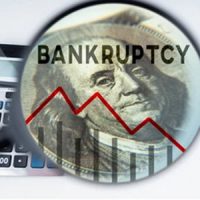Will the Trustee “Abandon” Estate Assets?

In most Chapter 7 cases, our clients can exempt all of their assets. However, in a minority of situations, our clients have assets that the trustee can liquidate to satisfy some of the creditors’ claims.
The trustee has discretion about whether to liquidate non-exempt assets. If not, the trustee can “abandon” the property. But what does that mean? Our South Florida bankruptcy attorney reviews.
What the Bankruptcy Code Says
According to Section 554(a) of the Bankruptcy Code, the trustee “may” abandon property if it is “burdensome” or is of “inconsequential value and benefit” to the estate. As you can see, the Bankruptcy Code grants the trustee discretion. The trustee may or may not abandon the property.
Although trustees generally try to get as much value as they can for creditors, they exercise judgment about whether to do so. As part of a review of your bankruptcy options, an attorney should discuss any assets you have that are non-exempt but might be burdensome or of inconsequential value.
Burdensome Assets
Assets are burdensome in several situations:
- The asset is inaccessible. Some assets are extremely hard to find and/or take possession of in order to sell.
- There are questions about whether you own the asset. For example, a debt owed to you is an asset, but you might not have adequate paperwork to shoe the debt is legitimate. Litigating the issue would be burdensome.
- The asset is a liability. For example, you might own real estate that has hazardous waste on it, which would have to be remedied before sale.
Of course, not every remote asset or uncertain debt is burdensome. The trustee will use his or her judgment to decide whether to go ahead and liquidate or abandon.
Inconsequential Value
In many ways, an asset that has little value might also be burdensome. But some assets are readily available to the trustee. Selling them, however, might not be worth his or her time.
Specifically, trustees don’t work for free. They receive a fee when they sell an asset. The percent they receive depends on the amount they collect. Sometimes, the amount of time and energy it takes to liquidate an asset will generate a fee that is too small in the trustee’s eyes. For this reason, the trustee might abandon the property.
Every trustee is different. One advantage of working with a seasoned Plantation bankruptcy attorney is that we generally understand what dollar amount the trustees in South Florida consider to be too little.
Was an Asset Abandoned?
There are two ways to tell. First, the trustee might motion the bankruptcy court to formally abandon assets. This might happen, for example, if there is a risk that an estate asset will generate litigation. Once an asset is abandoned, it is no longer in the debtor’s estate. Creditors could then come after it.
Second, any asset listed on your schedules is abandoned at the time your case is closed. This second option is most common.
Confused? Give Us a Call
The Plantation bankruptcy lawyers at Nowack & Olson can help you review your assets to determine which ones you could keep in a Chapter 7 liquidation. Call us today 888-813-4737 to learn more.
Resource:
law.cornell.edu/uscode/text/11/554
